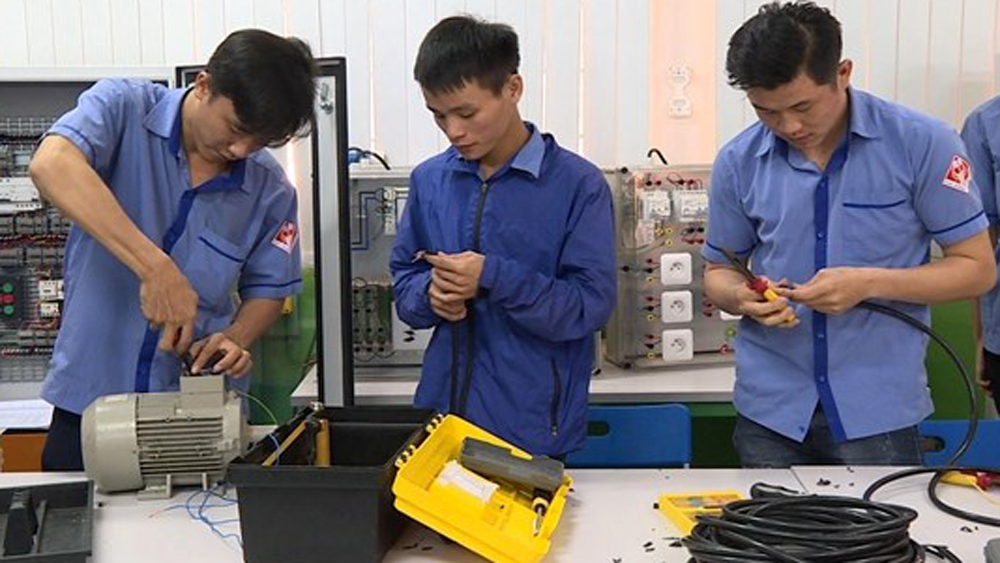Vocational training needs to attract participation of enterprises
Thanh was speaking at a recent dialogue organised by the VCCI’s HCM City Branch in collaboration with the Ministry of Labour, Invalids and Social Affairs' Directorate of Vocational Education and Training (DVET) and the German Development Cooperation Agency (GIZ) to discuss provisions of the 2012 Labour Code pertaining to businesses engaged in vocational training and education (VET).
 |
|
Students apply their knowledge and skills in practice at Ly Tu Trong Technical College based in HCM City’s Tan Binh District. |
A shortage of experts, failure of educational facilities and equipment to meet demand and old training curriculum are obstacles to the engagement of business in vocational training and education, Thanh said.
The number of workers trained by enterprises who work for more than a year for them subsequently has decreased sharply, said Bui Thi Ninh, Director of the VCCI’s Bureau for Employers’ Activities, HCM City Branch.
According to a survey by the VCCI, this rate was 70.3 percent in 2012 and only 63 percent in 2018.
There are no regulations governing on-the-job training in terms of trainers, standards, certificates, working relations, and labour contracts.
The Labour Code only regulates the role of enterprises in establishing vocational training institutes or organising training for their employees, but ignores many other aspects, she said.
Britta Van Erckelens of GIZ Vietnam said cooperation with the business sector is necessary to develop a sound and coherent demand-oriented technical and vocational education and training (TVET) system that provides an adequately skilled workforce for a green economy in the industry 4.0 era.
“Only the business sector can define the knowledge, skills and competencies needed and certify the quality of the training,” she said.
Important aspects and concepts concerning co-operation with the business sector in TVET have entered the legal framework since a new TVET law was enacted at the end of 2014, she said.
These aspects should be further defined and synchronised with provisions in the Labour Code, she said.
A mechanism that institutionalises the cooperation with the business sector should be jointly developed to suit Vietnamese conditions, she said.
“Those mechanisms, besides co-operatively implemented training, could and should include stakeholder boards, such as industrial advisory boards at the institutional level or sector councils at the sectoral level.”
She strongly encouraged joint efforts in this regard between DVET and the business sector, TVET institutions and provincial governments, saying only a joint approach would lead to comprehensive and sound results.
Ninh said to strengthen the connection between industry and vocational training, there should be alignment between laws, regulations and other legal documents.
Each vocational training activity that enterprises can participate in must be governed by regulations on implementation mechanisms, she said.
Since 2016 the amendment of the Labour Code has gone through three stages: drafting supplements since 2016, making proposals for a complete amendment from 2017 and drafting the amended Labour Code until now.
Amendments related to vocational education are expected to facilitate and provide opportunities for employees to get training and improve their occupational skills.
These will encourage enterprises to organise training for their employees, including those who do not have labour contracts.
Source: VNS/VNA
 Bắc Ninh
Bắc Ninh














Reader's comments (0)